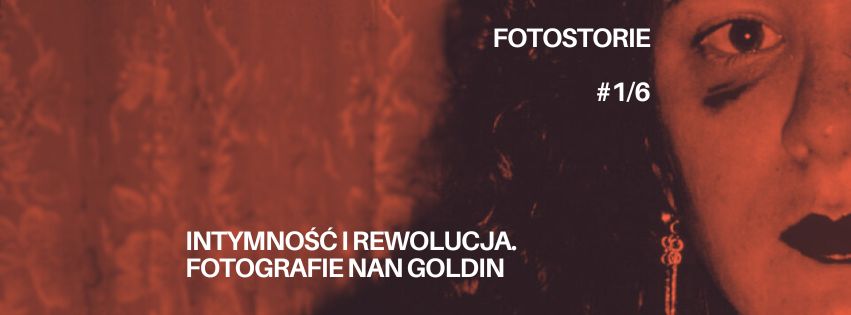
PHOTOSTORIES #1
This year, we are launching a series of lectures on photography as a medium that not only documents, but also creates, transforms and liberates. We will focus on its role as a tool for expressing political, social and feminist beliefs, as well as the ways in which women photographers around the world, despite many limitations, use this medium to tell their own stories.
We invite you to discover alternative, often forgotten histories of photography that go beyond dominant narratives. We will look at artists whose work comes from distant and seemingly different places – such as Georgia, Japan or Iran – but who have faced similar challenges. We will discuss how photography becomes a way to tell stories of memory, loss, exile, rebellion and hope, and how in the hands of photographers it is transformed into a form of artistic cry that gives voice to those excluded from mainstream narratives.
The first in a series of lectures will be devoted to Nan Goldin, one of the key artists of contemporary photography, whose work has had a significant impact on shaping contemporary discussions about the body, intimacy and emotions in art. Hailed in 2023 as the most influential figure in contemporary art, she revolutionized the way we perceive the documentation of private and social life, forcing the art world to rethink the boundaries of privacy, voyeurism and ethics. The lecture will look at Goldin’s key works, such as “The Ballad of Sexual Dependency”, which capture brutal yet intimate moments from the artist’s life and those close to her, balancing on the border between documentary and artistic creation.
Her photographs, full of honesty and courage, ask questions about how documenting human experiences affects our understanding of identity, body and interpersonal relationships. In a world where the boundaries between intimacy and the public are becoming increasingly fluid, Goldin’s work constantly provokes us to consider what really deserves to be revealed and what remains in the shadow of our privacy.

